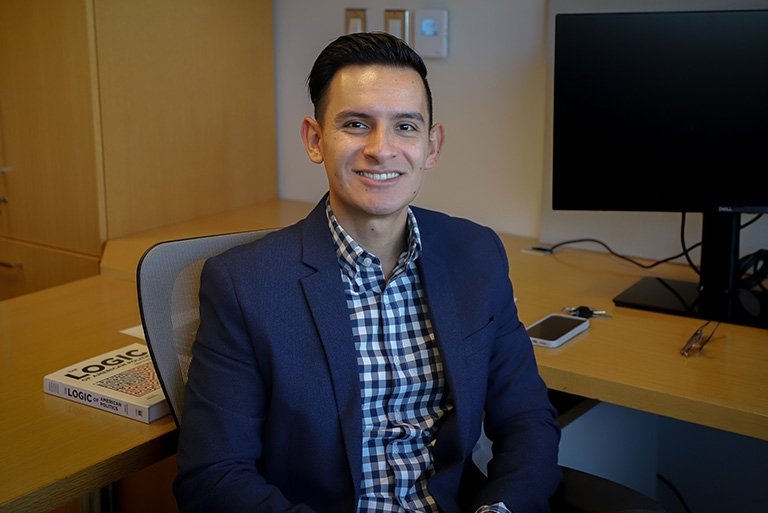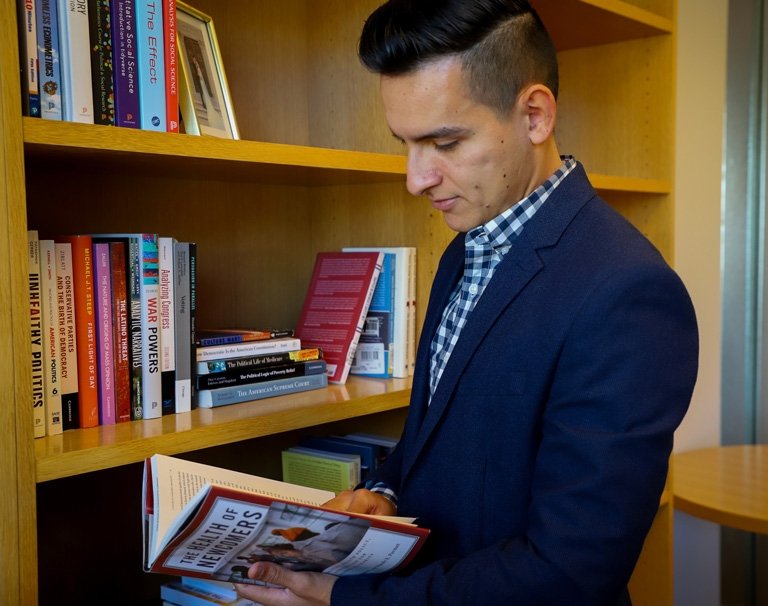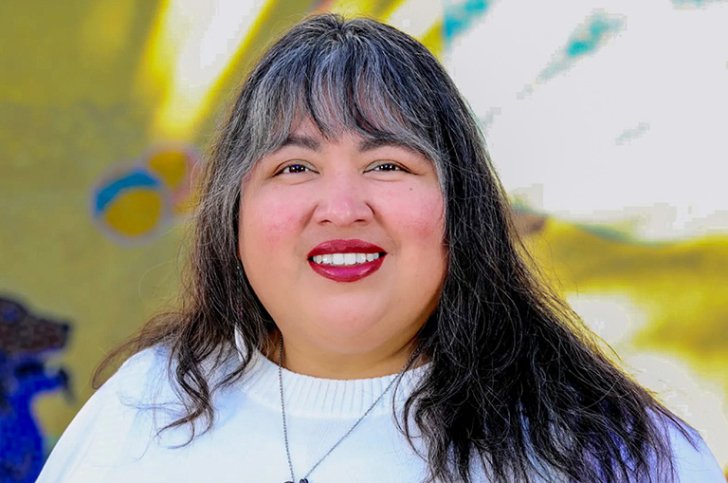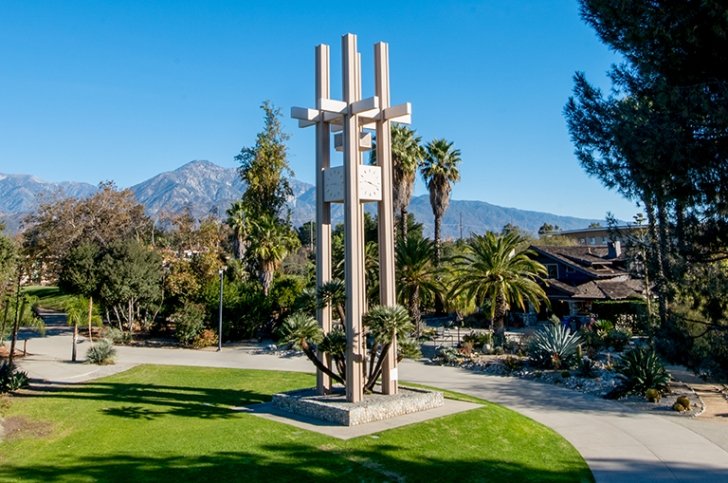Unexpected Politics of Immigrant Healthcare
As Cesar Vargas Nuñez ’14 joins CMC’s faculty this fall, he discusses how his experience as an immigrant from a low-income background inspires his research and teaching.

What others consider a hot-button political issue, Cesar Vargas Nuñez ’14 thinks of as a learning opportunity. His philosophy has guided him throughout his academic career, from researching healthcare inequities in Spain on a Fulbright to starting as an assistant professor of government at Claremont McKenna College this fall.
His scholarship engages a topic that’s on many Americans’ minds: undocumented immigrants.
Views on immigration have soured in recent years. A 2024 Gallup poll reported that 55% of Americans believe that immigration to the U.S. should decrease (a stark contrast to 29% in 2018). Meanwhile, fewer Americans say that immigration should increase (16% in 2024 versus 28% in 2018).
The research of Vargas Nuñez, who is an immigrant from Mexico, asks an unexpected question in the face of these sentiments: “Can you convince an anti-immigrant person that undocumented people should have healthcare?”
Personal experience inspired this question. Growing up on the San Diego/Tijuana border, Vargas Nuñez navigated the high costs for his father’s blood pressure medication in America. When he became a postdoctoral fellow at Stanford University, his dissertation explored a new angle to improve health outcomes for people like his father.
The need for medical care is not a matter of if, but when, and an untreated individual illness worsens public health (COVID-19 being one example). Vargas Nuñez discovered that this reasoning could persuade even anti-immigrant hardliners to expand healthcare. He also investigated how undocumented people deal with healthcare exclusion. He continues the research he started for his dissertation to this day.
“I’m interested in unpacking the role of lived experiences that connect immigrants with the local population,” said Vargas Nuñez. “To what extent can we find commonalities to give support for people who may not look like us?”
From studying medicine to teaching politics
When he attended Pitzer, Vargas Nuñez didn’t think he would address these issues as a professor. He planned to be a physician. To that end, he took science and political science courses to understand health through a multifaceted lens.
His participation in Pitzer’s Costa Rica Summer Health program and the Fulbright in Spain introduced him to alternate (and more inclusive) healthcare systems in other countries. He learned how politics and policy intertwine with public health and how where you live can make or break your wellbeing.
When he worked at a hospital in a low-income neighborhood after his Fulbright, he had an epiphany.
“What I was interested in wasn’t treating the patient and sending them home but addressing the structural issues that prevented folks from going through the door,” said Vargas Nuñez.
He saw people whose problems were compounded by an inability to go in at an earlier stage of illness because they had an undocumented family member or were undocumented themselves and were afraid of what might happen.
“I was thinking about where I could explore these issues—not just the causes but also the solutions,” said Vargas Nuñez.
Professor Nigel Boyle convinced Vargas Nuñez that he could pursue his interests as a professor. Now he is teaching his first class at CMC this fall: Introduction to American Politics. As an immigrant, he brings a fresh perspective on this subject. He wants his students to leverage their experience and collaborative learning to find unexpected solutions.

“Students learn best when they are able to teach each other and share lessons from their backgrounds, readings, and what they’ve seen,” said Vargas Nuñez.
Vargas Nuñez integrates the practical with the aspirational in his classroom. He wants his students to understand how government systems work, how they could work better, and the challenges to make the changes that people want to see.
His background also makes him mindful of creating an inclusive academic space. He holds candid discussions about classroom expectations, unwritten norms, and mental health resources. He also shares about his experience as a student who relied on financial aid and dealt with structural obstacles in his education.
“I seek to unpack the ‘hidden curriculum’ of academia,” said Vargas Nuñez. “My goal is to help uplift students from disadvantaged backgrounds to help them succeed and diversify the professoriate if that is the career they choose.”
Whether it’s related to healthcare, education, or politics, Vargas Nuñez is always thinking about how to make society more equitable.
“My contribution to the world is combining academic, rigorous scholarship with my lived experience and knowledge about what is happening on the ground,” said Vargas Nuñez.
News Information
Published
Author
Bridgette Ramirez


